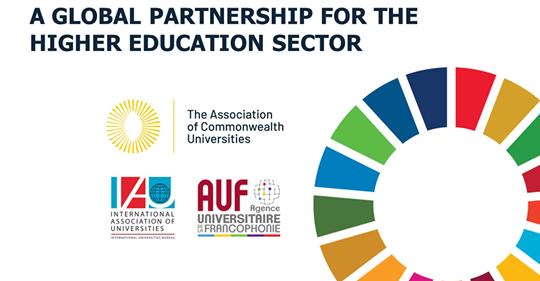
[This is an excerpt from an article appearing in the current edition of The Round Table: The Commonwealth Journal of International Affairs. Opinion articles do not reflect the position of the Round Table Editorial Board.]
Commonwealth governments have attempted to mitigate the education impact, choosing from the limited available options. Home learning provision via online, mobile, TV, and radio has been widespread, but has exacerbated inequalities of access in both high- and low-income settings. Furloughing teaching staff and emergency financial support to education providers has afforded short-term relief. Socially distanced school re-openings have experimented with reduced class sizes, shift attendance, and prioritisation of at-risk pupils, provoking debate on immediate health risks versus longer-term educational and economic damage. International efforts to share solutions and coordinate action have been headed by the UNESCO-led Global Education Coalition and the existing Global Partnership for Education. However, to date, education appears low on recovery agendas.
The crisis has accentuated systemic interlinkages between education, health, welfare, and the economy, and the need for a co-ordinated response. It has underscored the primacy of human development as a holistic endeavour and challenged policymakers to re-think development priorities and education’s place within them. It has highlighted the need to build resilience into our social structures and ways of life, including education systems, to withstand future crises. It has also engendered a new recognition of our inter-dependence and the importance of mutual support between individuals, communities, and nations, as high- and low- and middle-income countries (LMICs) all struggle to respond.
This re-emphasis on interdependence and multilateralism aligns well with Commonwealth thinking on its role and comparative advantage. With many LMICs and small and fragile states in membership, the Commonwealth has long focussed on promoting international agreements and safety-nets, and multilateral approaches. It gives an equal voice to all members and a seat at the table to those who don’t always get one elsewhere. Its longstanding work with small states focuses on resilience, necessarily taking a cross-cutting, human development approach.
Within education, areas where the Commonwealth has notable existing infrastructure and experience also map directly on to areas now in crucial need of focus and multilateral co-operation due to Covid-19. Most evident is distance education where the Commonwealth of Learning (COL) is well placed to coordinate thinking on short- and long-term risks and opportunities, particularly around access and teacher training in low-income settings. Improved internal linkages with the Commonwealth Telecommunications Organisation (CTO) would help the Commonwealth scale up its leadership role even further. Similarly in higher education and youth exchange, networked via the Association of Commonwealth Universities (ACU), Commonwealth Scholarship and Fellowship Plan (CSFP) and the Commonwealth Secretariat’s youth development programmes, the Commonwealth could lead thinking and advocacy on solutions to student mobility issues, institutional sustainability and the role of research in pandemic response. COL’s June statement to ministers and the new JET Education Services, Secretariat and ACU partnership to launch a Covid-19 Commonwealth researchers programme, are a good start.
Despite their catastrophic consequences, pandemics can act as catalysts to systemic change, prompting radical rethinking. Covid-19’s refocusing of education agendas and their fortuitous alignment with Commonwealth priorities, provides a rare opportunity for the Commonwealth to radically rethink its own. A recalibrated Commonwealth agenda might underscore multilateral, multisectoral cooperation across human development, putting this back at the heart of a less siloed, better resourced Secretariat. Peer-to-peer learning and support between members should be central, with LMIC member states leading efforts. This would position the Commonwealth as an intergovernmental player in tune with the times, confronting conversations on rebalancing development partnerships and decolonising knowledge exchange. Education system resilience could be the touchstone of this reformed agenda. Commonwealth-led work in distance learning and higher education could underpin this and ensure the primacy of inclusion and equity. An interlinked Commonwealth, centred on human development, could better help protect education budgets and expedite achievement of the SDG goals.
Opportunity beckons. Can Commonwealth education partners respond by defining a realistic and distinctive agenda through to the 2021 CCEM and beyond? This is surely the moment to rethink, ditch business as usual and, in the language of post-crisis recovery, to ‘build back better’.
Beth Kreling is a Senior Policy Fellow, Department of Health Policy, London School of Economics & Political Science and Peter Williams is the President of the Commonwealth Consortium for Education.



